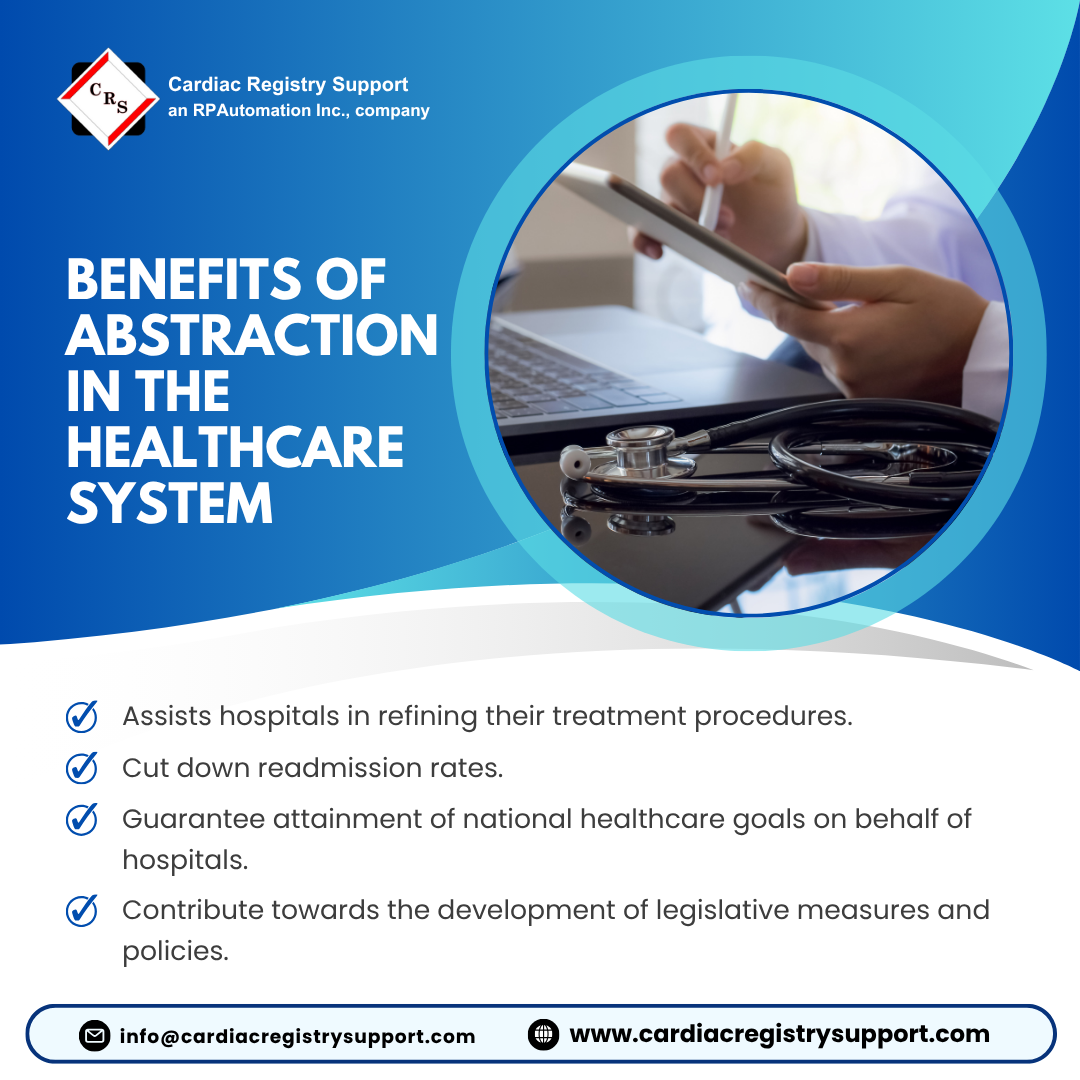In today’s data-driven healthcare environment, hospitals are under immense pressure to improve patient outcomes, reduce readmissions, and maintain compliance with regulatory standards. One of the most effective ways to achieve these goals is through core measures abstraction—a critical process that ensures hospitals accurately track and report their performance on key clinical quality indicators.
Many leading healthcare data abstraction providers, such as Cardiac Registry Support, support hospitals by offering high-quality data abstraction services that drive better performance and compliance. In this article, we’ll explore the importance of core measures abstraction, its impact on hospital performance, and why outsourcing this process can be a game-changer for healthcare facilities.
What is Core Measures Abstraction?
Core measures abstraction is the process of collecting, analyzing, and reporting standardized clinical data to ensure hospitals meet quality and compliance requirements. These core measures—set by organizations like The Joint Commission (TJC), Centers for Medicare & Medicaid Services (CMS), and the National Quality Forum (NQF)—are designed to assess hospital performance in key areas such as:
✔ Heart failure (HF)
✔ Acute myocardial infarction (AMI)
✔ Pneumonia (PN)
✔ Stroke (STK)
✔ Venous thromboembolism (VTE)
✔ Emergency department (ED) care
Hospitals must submit this data for public reporting, reimbursement, and accreditation purposes, making accurate core measures abstraction essential for success.
Why Core Measures Abstraction Matters for Hospital Performance
1. Improves Patient Outcomes
Hospitals that consistently track and improve their core measures see better patient outcomes, reduced complications, and fewer readmissions. For example, accurate abstraction of stroke care measures ensures that eligible patients receive timely thrombolytic therapy, improving survival rates.
2. Enhances Regulatory Compliance & Accreditation
Government agencies and accrediting bodies require hospitals to submit core measure data. Failure to comply can result in:
🚨 Financial penalties
🏥 Loss of hospital accreditation
📉 Negative public reporting scores
By ensuring accurate data abstraction, hospitals can maintain compliance and secure their CMS reimbursement and The Joint Commission accreditation.
3. Maximizes Hospital Reimbursement & Value-Based Purchasing
CMS and private insurers now use value-based payment models where hospitals are reimbursed based on performance. Better core measure scores = higher reimbursements.
For example, Cardiac Registry Support helps hospitals maximize financial performance by streamlining the data abstraction process, ensuring hospitals receive proper reimbursement while improving their quality scores.
4. Supports Data-Driven Decision-Making
Hospitals that leverage real-time core measures data can make faster, evidence-based decisions to improve patient care. Solutions from providers like Cardiac Registry Support use AI-driven abstraction to help hospitals analyze trends and implement quality improvement initiatives.
Challenges of Core Measures Abstraction (And How to Overcome Them)
1. Data Accuracy & Consistency Issues
Manual abstraction is prone to human errors, leading to inaccurate reporting. Outsourcing to expert data abstraction companies like Cardiac Registry Support ensures hospitals maintain data integrity while reducing staff burden.
2. Resource & Staffing Constraints
Many hospitals lack dedicated abstraction teams, causing delays in reporting. Partnering with outsourced healthcare abstraction specialists allows hospitals to focus on patient care while maintaining accurate and timely submissions.
3. Keeping Up with Changing Regulations
Core measure requirements evolve frequently. Third-party abstraction firms like Cardiac Registry Support stay updated on the latest guidelines, ensuring hospitals remain compliant and ahead of regulatory changes.
Should Hospitals Outsource Core Measures Abstraction?
Absolutely! Hospitals that outsource core measures abstraction to trusted providers like Cardiac Registry Support gain significant benefits, including:
✅ Increased accuracy & reliability of reported data
✅ Faster turnaround times for submissions
✅ Reduced administrative burden on in-house teams
✅ Cost savings compared to hiring and training full-time abstractors
By partnering with experienced data abstraction companies, hospitals can streamline reporting processes, improve performance metrics, and enhance overall patient care.
Final Thoughts: Invest in Core Measures Abstraction for Better Hospital Performance
Core measures abstraction is not just a reporting requirement—it’s a powerful tool that hospitals can leverage to improve patient care, compliance, and financial stability.
At Cardiac Registry Support, we help hospitals optimize their core measure abstraction processes with expert services tailored to your needs. Whether you choose an outsourced provider like Cardiac Registry Support, or need in-house solutions, accurate data abstraction is the key to better healthcare performance.
Ready to improve your hospital’s core measures reporting? Contact Cardiac Registry Support today to learn more! 🚑📊💙
👉 Visit our website: www.cardiacregistrysupport.com


